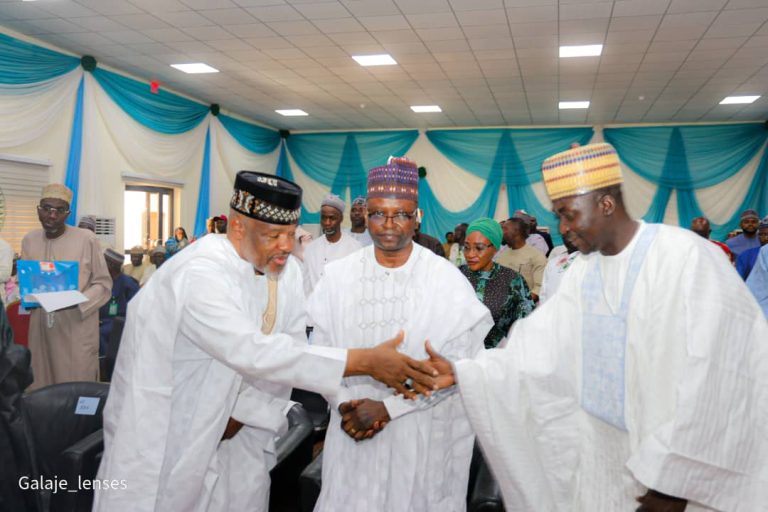Bauchi State Government, on Tuesday, expressed its readiness to collaborate with Johns Hopkins Programme for International Education in Gynecology and Obstetrics (JHPIEGO) and other relevant Partners in the health sector towards addressing the noticed gap burden in Maternal, Perinatal and Child Morbidity in the state.
The expression was made by the State Governor, Senator Bala Abdulƙadir Muhammad during a dissemination meeting of Baseline Findings for General Anti-natal care (G-ANC) and Post-natal care (PNC) Project held at the Banquet Hall of the Government House, Bauchi.
Bala Muhammad who was represented by the Secretary to the State Government (SSG), Barr Kashim Ibrahim said that his Administration is working in synergy with International Developmental Partners to positively impact the lives of children and mothers.
He also said that the collaboration has focused on areas such as immunization, nutrition, water sanitation, hygiene and child healthcare services.
He added that the outcome of the Maiden Bauchi Health summit organized by his administration is already in line of implementation.
This is in addition to Renovations and construction of Primary and Secondary Healthcare Facilities across all the Three Senatorial Districts.
The Governor appreciated JHPIEGO for the working towards the findings using the medium to acknowledge the support of developmental partners to the present administration promised that He will continue to provide them with the enabling environment to achieve their organizational mandate.
According to him, “This assessment you have carried out is crucial step in understanding the current state of our health facilities and identifying areas for improvement as well as selected those to partake in the project. I am happy to hear that this intervention is covering 158 PHCs based on the successes recorded and we learn that there is a possibility of scaling up to additional health facilities in the future.”
He added that,”According to the SDGs 3 ‘’good health and well-being’’, it aims to achieve universal health coverage and equitable access of healthcare services to all men and women. It proposes to end the preventable death of newborns, infants and children under five mortality and end epidemics, and this part of our dream, and we will continue to work towards that direction.”
Earlier he State Commissioner of Health, Dr. Adamu Umar Sambo pointed out that identifying the gaps is an aspect that the Stakeholders should, as a matter of importance, also look into and proffer possible ways to such issues to provide the necessary support that would help the State improve its healthcare delivery for a healthy society.
The Commissioner also said that 70% of people seeking healthcare services come from rural and informal sectors, and asked partners to put their best efforts into the project instead of forcing donors to do everything.
He stressed that, “This project aims to revolutionize the way we provide antenatal care, making it more effective, efficient, and patient-centered that would in the future translate into reduction in maternal and neonatal deaths in both rural and urban settlements.”
The Commissioner added that,”The facility assessment conducted by JHPIEGO team was a critical step in identifying areas of strength and weakness, and informing our strategy for implementation.”
According to him, “The findings 235 PHCs will help us tailor our approach to meet the unique needs of our health facilities, ensuring that we maximize the impact of the Group ANC project.”
In his address, the Country Director of JHPIEGO Nigeria, Dr Adetiloye Oniyire, who was represented by Oyetunji Jayeola, explained that the Findings was conducted in 235 facilities and affirmed the Readiness of the Organization to assist the state government to incorporate in its agenda.
He pointed to possible areas of cooperation with the state: through joint investments, technical assistance to the state, training of health workers and provision of other sources of support to the state, stressing that the state would contribute its quota.
